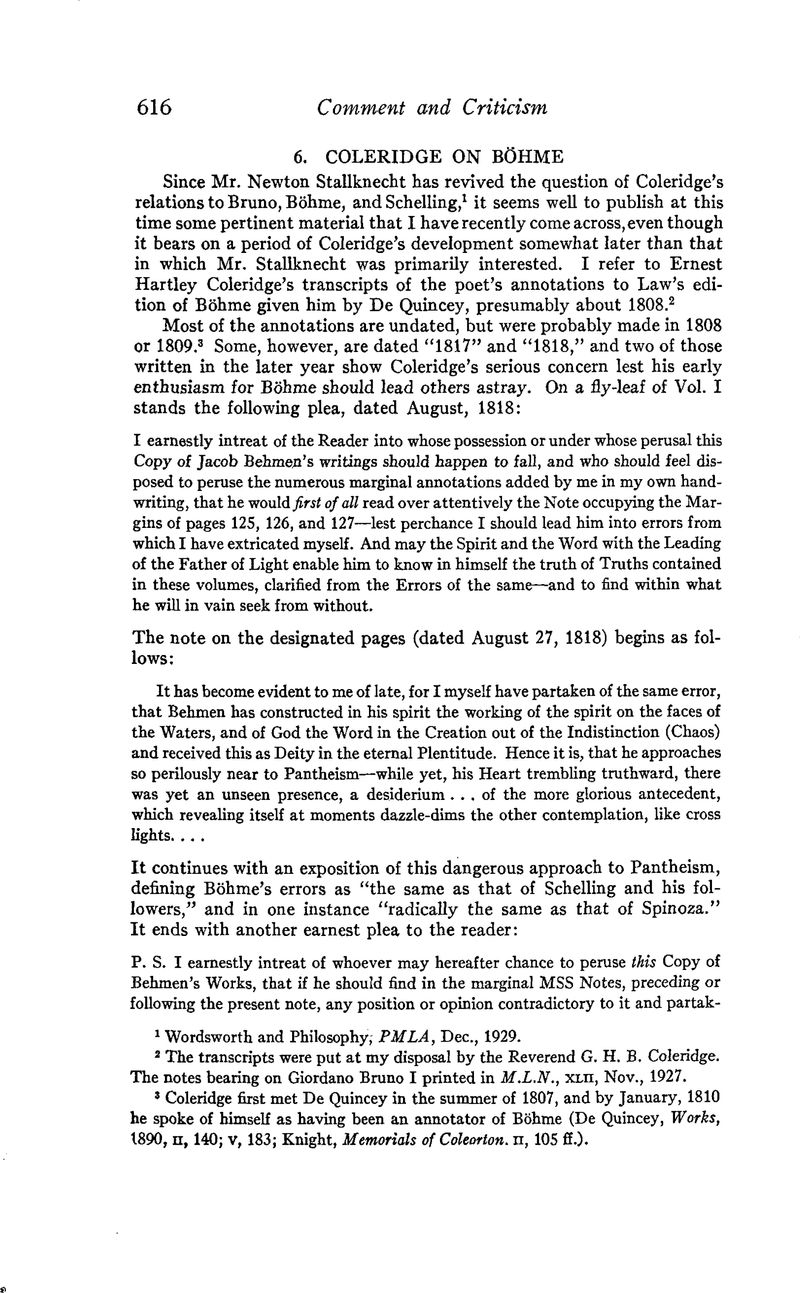No CrossRef data available.
Published online by Cambridge University Press: 02 December 2020

1 Wordsworth and Philosophy, PMLA, Dec., 1929.
2 The transcripts were put at my disposal by the Reverend G. H. B. Coleridge. The notes bearing on Giordano Bruno I printed in M.L.N., xlii, Nov., 1927.
3 Coleridge first met De Quincey in the summer of 1807, and by January, 1810 he spoke of himself as having been an annotator of Böhme (De Quincey, Works, 1890, ii, 140; v, 183; Knight, Memorials of Coleorton. ii, 105 ff.).
4 Other references to Humphry Davy found in these annotations are published in the chapter entitled The Potential Scientist of my recent study, Coleridge on Logic and Learning, with Selections from the Unpublished Manuscripts (New Haven, 1929).
5 For the present location of the work and published references to it see Haney's Bibliography of Coleridge, p. 103.
To send this article to your Kindle, first ensure no-reply@cambridge.org is added to your Approved Personal Document E-mail List under your Personal Document Settings on the Manage Your Content and Devices page of your Amazon account. Then enter the ‘name’ part of your Kindle email address below. Find out more about sending to your Kindle. Find out more about saving to your Kindle.
Note you can select to save to either the @free.kindle.com or @kindle.com variations. ‘@free.kindle.com’ emails are free but can only be saved to your device when it is connected to wi-fi. ‘@kindle.com’ emails can be delivered even when you are not connected to wi-fi, but note that service fees apply.
Find out more about the Kindle Personal Document Service.
To save this article to your Dropbox account, please select one or more formats and confirm that you agree to abide by our usage policies. If this is the first time you used this feature, you will be asked to authorise Cambridge Core to connect with your Dropbox account. Find out more about saving content to Dropbox.
To save this article to your Google Drive account, please select one or more formats and confirm that you agree to abide by our usage policies. If this is the first time you used this feature, you will be asked to authorise Cambridge Core to connect with your Google Drive account. Find out more about saving content to Google Drive.